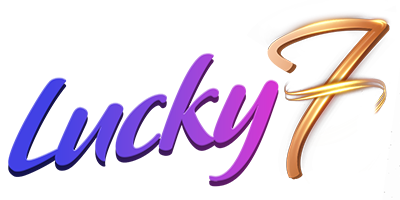The rise of blockchain technology has revolutionized many industries, and the gambling sector is no exception. In an era where trust is hard to come by, smart contracts in gambling are changing the game by automating processes, ensuring transparency, and eliminating the need for intermediaries. This transformation paves the way for faster payments, fewer disputes, and fairer gaming environments. Let’s explore how smart contracts are redefining the future of online gambling.
What Are Smart Contracts?
Smart contracts are self-executing contracts with the terms of the agreement directly written into code. They run on blockchain networks like Ethereum, executing predefined rules when certain conditions are met. Since the contract's execution is decentralized and immutable, it removes the need for a central authority or third party to enforce agreements.
In the context of gambling, smart contracts can handle everything from placing bets and calculating odds to distributing winnings, all in a transparent and automated manner.
How Smart Contracts Work in Online Gambling
To understand how smart contracts work in online gambling, consider a simple example: Two players place a bet on the outcome of a sports match. A smart contract is created with the rules of the bet, including how the winner is determined and how the funds are distributed. Once the match concludes and the result is verified, the contract automatically sends the winnings to the correct player.
Here are the key steps involved:
-
Player Actions: Players interact with a decentralized gambling platform and place their bets via a smart contract.
-
Contract Execution: The smart contract holds the funds securely and waits for the predefined outcome or event.
-
Result Verification: An oracle or trusted data source verifies the event outcome and feeds it to the blockchain.
-
Automated Payout: The smart contract releases funds to the winning party instantly and transparently.
No human interference, no processing delays, and most importantly, no room for disputes.
Benefits of Using Smart Contracts in Gambling
Trustless Gaming
Smart contracts remove the need to trust the gambling platform. Since rules and outcomes are embedded in the code and publicly verifiable on the blockchain, players know they’re getting a fair deal.
Instant Payouts
Smart contract casinos with instant payouts are becoming increasingly popular. Unlike traditional online casinos, which may delay withdrawals or impose hidden fees, smart contract platforms automatically release winnings the moment a condition is met.
Fraud Prevention
Using blockchain technology to prevent casino fraud is one of the biggest advantages of decentralized gambling. Since all transactions are recorded on a transparent ledger, operators cannot manipulate results or withhold payments. Smart contracts also eliminate the risk of server-side tampering.
Lower Operational Costs
Without the need for intermediaries or manual processes, smart contract platforms can operate at a fraction of the cost, passing the savings on to players in the form of better odds or lower fees.
Provably Fair Gaming
With provably fair gambling using Ethereum smart contracts, every player has access to the same algorithm used to determine outcomes. This cryptographic transparency ensures results are not manipulated and can be verified independently by users.
Popular Use Cases and Applications
Decentralized Sports Betting
Platforms that allow peer-to-peer betting without a bookmaker are growing. Here, smart contracts handle the bet escrow, validate results using oracles, and execute payouts without needing a centralized sportsbook.
Casino Games
From slots to poker, many smart contract casinos with instant payouts offer traditional casino games with an innovative twist. These games use on-chain logic and randomness to produce outcomes, providing full transparency.
Lottery Systems
Blockchain-based lottery platforms utilize smart contracts to pool funds, select winners using random number generation algorithms, and distribute prizes without manual intervention.
Fantasy Sports and Esports
The competitive gaming world benefits from decentralized systems that allow fans to wager on fantasy lineups or esports outcomes, with smart contracts ensuring fair play and timely rewards.
Challenges and Considerations
Scalability and Gas Fees
Smart contracts, especially those running on Ethereum, can become costly during network congestion due to high gas fees. Layer-2 solutions and other blockchain networks are being explored to mitigate this.
Legal and Regulatory Issues
The legal landscape for online gambling varies widely by jurisdiction. Smart contract casinos may operate in a legal grey area, and users must be aware of local regulations before participating.
Oracle Dependency
Many gambling contracts rely on oracles for real-world data. If oracles are compromised or delayed, contract execution may be affected. Decentralized oracle networks like Chainlink help address this vulnerability.
User Experience
While tech-savvy users may be drawn to blockchain-based gambling, the average player might find the experience unfamiliar or intimidating. Improving UX and simplifying wallet integration is crucial for mainstream adoption.
The Future of Smart Contract Gambling
As blockchain technology matures, so too will the gambling platforms that utilize it. Future innovations may include:
-
AI-integrated smart contracts to adjust odds and personalize gaming experiences.
-
Cross-chain compatibility to support tokens and assets across multiple blockchains.
-
DAO-managed casinos, where players vote on platform rules, updates, and profit sharing.
Most importantly, we can expect a continued shift toward systems where transparency and automation eliminate the mistrust that has plagued online gambling for years.
Final Thoughts
The implementation of smart contracts in gambling marks a significant milestone in the evolution of the industry. By enabling instant payouts, preventing fraud, and ensuring provably fair outcomes, blockchain-based gambling platforms are setting a new standard for fairness and efficiency.
For players, this means more control, better transparency, and fewer disputes. For operators, it presents an opportunity to innovate, reduce overhead, and reach a broader audience seeking fair and secure gameplay.
Whether you’re a casual gamer or a blockchain enthusiast, the future of gambling looks smarter, faster, and more transparent than ever before.




